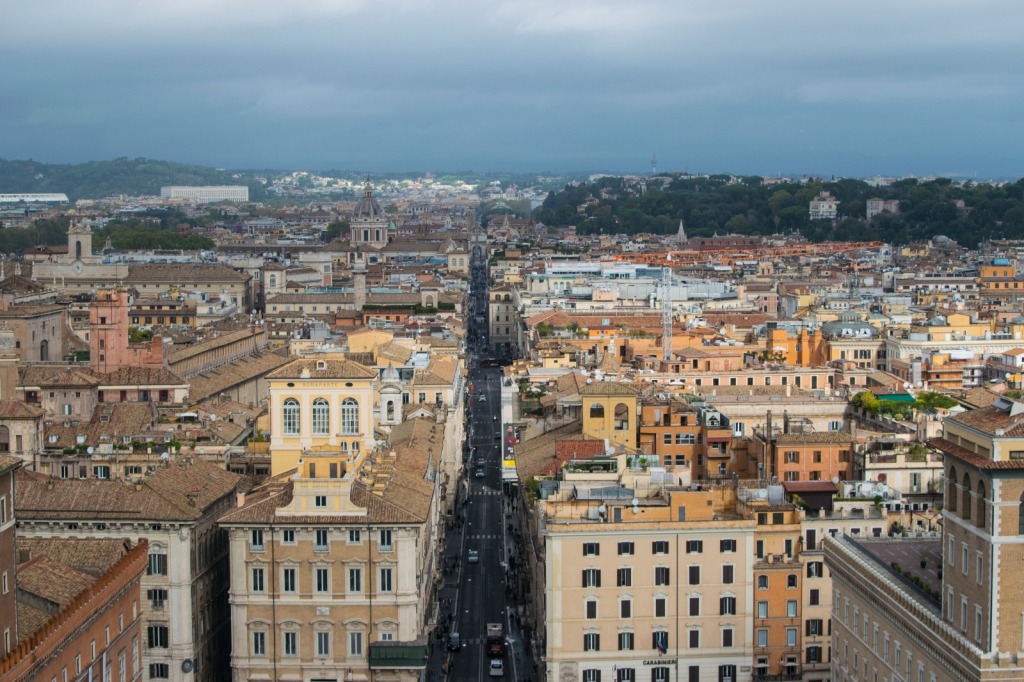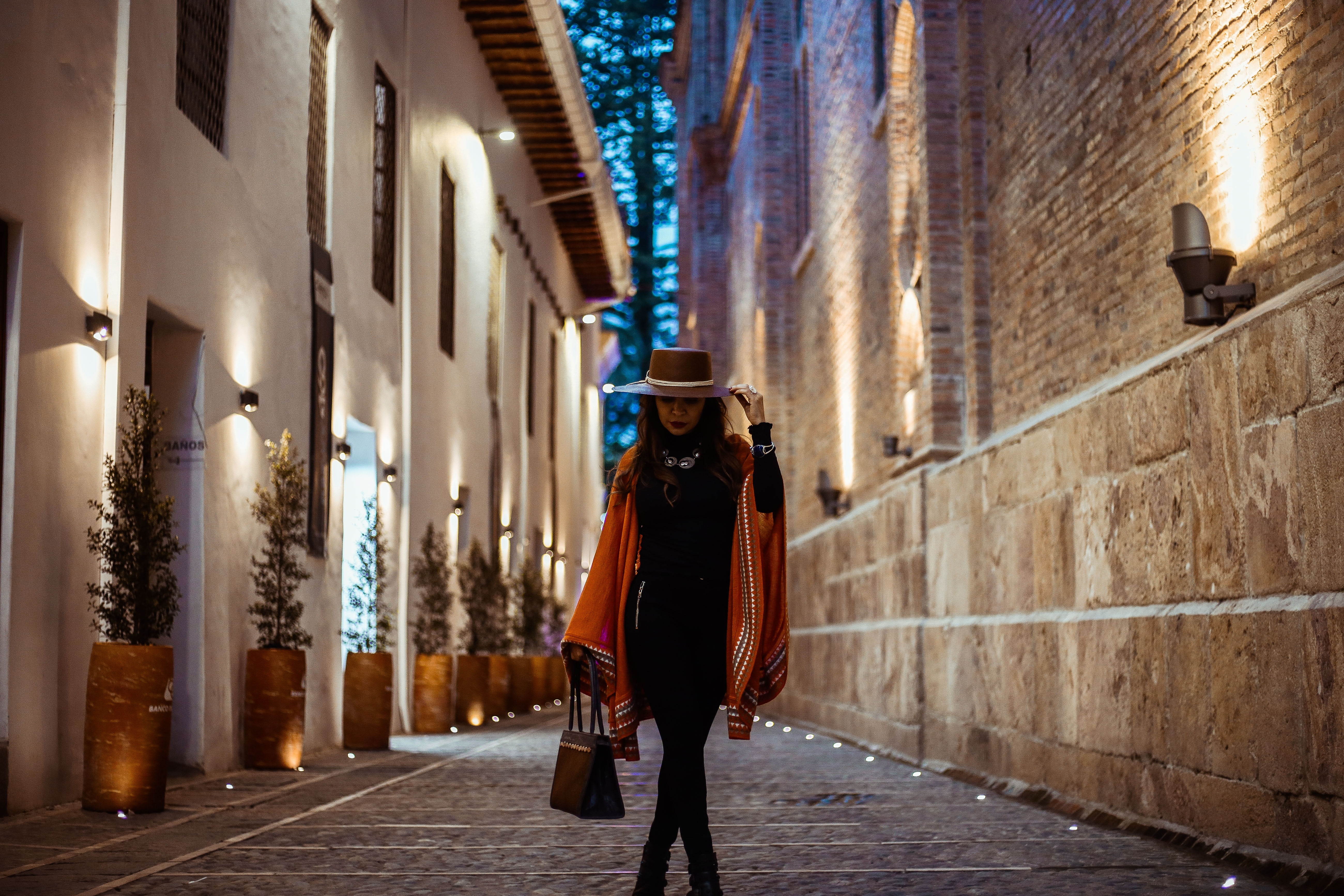
Italy is on many people’s bucket list, and for good reason. The country is a haven for good food, soccer, and vibrant history. Millions of tourists flock to the destination every year in search of world famous monuments and delicious pizza.
It is certainly a smart choice, as I myself can attest that the country really does live up to expectations! However, there are certain problems with Italy that may make certain travelers wary of visiting the boot shaped land. For autistic travelers, the lack of accessibility and general awareness of autism in Italy can make the destination seem more scary than fun.
In general, this is unfortunately a problem in many other European countries as well, and this can make traveling to Europe daunting for disabled foreigners.
Accessibility
As I said before, Italy does have some accessibility issues and I would say that Italian people in general, tend to be a little less familiar with Autism and how it works than Americans. Italy thankfully is still light years ahead of countries such as France in that it recognizes Autism as a valid disability rather than as a psychological problem caused by a child’s social upbringing. However, there is still room for improvement in Italy as access to accommodations can be difficult, and not all professors know how to handle a student with the diagnosis.
For example, my first day at the Universita per Stranieri was rather nightmarish as my oral placement exam was held in a crowded noisy room. Everyone was taking the test at the same time and speaking all at once. Worse, the room echoed all the sounds coming in and out. To me it just sounded like static noise.
Because it was so loud, I couldn’t hear a word of what my tester was saying. He thought I didn’t understand and when I told them it was to noisy and I couldn’t hear, he tried correcting me, thinking I was trying to say I didn’t understand
His impatient and rude manner made me even more stressed, and I ended up leaving the classroom in tears. Originally I thought it was all my fault, but I realize now that the University could’ve handled the situation better.
They knew I was on the spectrum and had accommodations requested, so they could’ve discussed this with the test proctor. They also could’ve have done the test in a smaller and quieter room.
Accessibility I’ve noticed in Italy tends to be unfortunately the exception rather than the rule. It is not somewhat expected like it is in the states. This extends to both physical and mental accessibility – if someone cannot access a building or a student cannot get accommodations it’s just seen as unfortunate rather than an active cause for concern.
A cafe accessible only by stairs in the United States is seen as shameful and embarrassing by many, where as in Italy such a thing is frequently the norm and no one complains.
While Italy is slowing improving accessibility, it may still seem light years behind to foreigners from the United States.
Sensory Issues
For those on the spectrum who are little more sensitive to things like smells, taste, etc., they made find certain things in Italy difficult.
One such issue is smoking, which has a very different culture here than in the United States. Not only do many more people smoke here, they also have a very different idea of smoking etiquette than we do. There is little shame in polluting the air in public in Italy, and smoking doesn’t seem to be seen as dangerous as it as by many in the United States.
You can easily find yourself walking through a place that smells like cigarettes or catch yourself in a cloud of smoke. And well many Italians are considerate and smoke outside, there a few who see no shame in smoking in public places inside such as schools, cafes, etc.! This for obvious reasons can make things especially unpleasant for the autistic traveler.
The smell of smoke is no fun, and it can discourage an autistic person from going out. But there are ways to cope with the smoke smell, such as by going inside no smoking cafes or going to less crowded streets.
Another issue that may be difficult for American travelers is the idea of touch and personal space in Italy. Americans tend have a much wider personal bubble than most Italians. We tend to have a bubbles that are at least five feet wide where as in Italy, personal bubbles are either small or practically non existent.
People have no problem here huddling up in lines or seats on public transport, and conversations can be much more touchy-feely and close, regardless of the relationship you have with the person. To autistic people who get uncomfortable or overwhelmed with hugs, touches, etc., it is important to prep for crowds as well as potentially discuss with Italian friends their personal boundaries.
It is important when discussing these boundaries with people to explain that this is not simply a cultural difference, but also a personal reason. You should explain that for you touch makes you nervous and overwhelmed, and that you’d prefer that they displayed signs of affections in a different way.
Some sensory issues however, such as food have actually improved for me. For example, I find that the food textures and taste are less of an issue for me here. Most of the food is made fresh and is usually more mild, so I don’t really feel overwhelmed by the taste.
The most important thing you can do when it comes to Italy is prepare in advance and have an escape plan. Be prepared for crowds, smoke, and other issues that may cause discomfort. More importantly get to know the basic layout of the area you’re in if possible so you can know how to leave the place or find somewhere quieter.
Know How To Explain Your Autism
Situations may arise where you are overwhelmed or potentially even unsafe due to a meltdown or a similar problem. For these situations, knowing how to explain your disability can be a life saver.
If you are in a situation of distress, you need not actually explain what Autism is. You don’t even have to disclose the diagnosis if you don’t want to. What you need to know how to do, is explain the problems that you might have and what the person can do to help. For example, consider explaining how you have sensory issues and that the situation is making you feel overwhelmed.
You should also have this information on a card or your phone if possible. If you are in a position where speaking is difficult, having a written description can be helpful. Include an emergency contact as well if you can.
You should have the words in English and Italian. You don’t need to be fluent in Italian to do this:just look up a a couple phrases online that best fit the description you need. Or, you can copy my description below:
Mi chiamo Stephenie Thorne e ho una disabilità che possono fare folla e rumoroso suona molto soverchiante e stressante. Per favore, sei paziente con me. Se questo è un emergenza usa il numero sotto.
My name is Stephenie and I have a disability that can make crowds and loud sounds very overwhelming and stressful. Please be patient with me. If this is an emergency use the number below.
Your phone number here
You can customize it a bit by using some help with sites like WordReference. Note that I use the word disability rather than autistic. This is to avoid confusion, since not all people understand what Autism is.
Get Up Early And Travel On Weekdays And/Or Off Season, If Possible
If you are like me and struggle with large crowds, you may want to consider traveling during the off season. For Italy, you can expect summer to be the peak season, with the months from October to December being low season. Obviously, weekdays also tend to be less crowded than the weekends. If you can manage it, a trip on Monday or Thursday is definitely worth it.
With that being said, be aware that popular tourist destinations like Rome can still be extremely crowded even in the off season and/or on weekdays. World famous monuments and ruins like the Colosseum for example, are almost guaranteed to always be somewhat packed.
If you can manage it, opt for a early morning alarm and head to popular destinations at 6. It’ll likely save you the headache of huge crowds, both on the way there and at the destination itself. Or if you’re not dying to see museums and monuments, head to quieter areas of the city further from downtown in your destination.
Another way to avoid crowds is to check the calendar to make sure there aren’t any big events going on in your destination when you arrive. This will likely increase the number of people there dramatically, even in the off season. I made the mistake of booking a trip to Milan during fashion week, and well I did enjoy my time there, the crowds were a nightmare. You can check for big events on sites like TripSavy, which list them month by month. Here’s one for Rome.
Accommodation
Accommodation can make or break your experience abroad, and that’s true not just for autistic travelers, but anyone. To ensure a smooth experience, I recommend booking somewhere that is located near a transport hub, is relatively safe, and has a patient staff. Having things like complimentary breakfast and toiletries is also a good idea, because it can remove a lot of stress.
Definitely take the reviews beforehand also to get a good feel for the place. Also don’t overlook hostels! They might seem like sensory hell for autistic people, but if you know how to prep and stay in a luxury one (yes luxury hostels are a thing) you can actually have a great experience. They are always the best option for solo travelers and there are plenty that aren’t party hostels and offer things like light blocking curtains and soundproof walls to make the communal experience more pleasant.
Safety
Italy in general, is a very safe country. However, there are a few things you should be aware of when it comes to bigger cities. In places like Rome, pickpockets and scammers are notorious. Avoid accessories like fanny packs which are easy to steal from and make you a prime target for scams.
Leave valuables like passports in a hotel/hostel safe if you can and avoid carrying around flashy items like designer purses and expensive watches. Additionally, avoid interacting with people offering you “free” gifts like Roses and bracelets. This is almost always a scam.
Some people have also suggested dressing and acting like a local. Well I don’t think it’s necessary a bad idea to look less touristy, most pickpockets and scammers will still easily be able to tell the difference between a local and a foreigner. There’s so much more that will give you away that you don’t even think about like your mannerisms and the way you walk. Oh and speaking English is also a dead give away too, obviously.
In my opinion, the best way to detour pickpockets and the like is too look like you don’t have any valuable to steal. Dressing down and wearing old backpacks makes you a much less attractive target. Of you course, you should still always be careful. This guide on pickpockets is very helpful.
In Conclusion
Italy can absolutely be a wonderful experience for those on the spectrum. You just need to know how to prep and prepare for the unexpected to happen. The country might seem intimidating to autistic travelers, but it is actually very nice.
If you’re looking for a country that is safe, beautiful, and full of delicious food you’ve come to the right place. So don’t be afraid to visit Rome or Milan, or better yet… explore the smaller cities! The place is full of things to do and a trip here certainly shouldn’t be missed due to fears of autism being a problem.
 Imagine your typical solo traveler. You probably come up with an image of a 20 something skinny white woman throwing her arms up in the air well overlooking a mountain. If google images and Wanderlust pins are to be believed, our average solo traveler dons an expensive backpack, is typically white, female, and young, and has the body of a personal fitness trainer.
Imagine your typical solo traveler. You probably come up with an image of a 20 something skinny white woman throwing her arms up in the air well overlooking a mountain. If google images and Wanderlust pins are to be believed, our average solo traveler dons an expensive backpack, is typically white, female, and young, and has the body of a personal fitness trainer.







